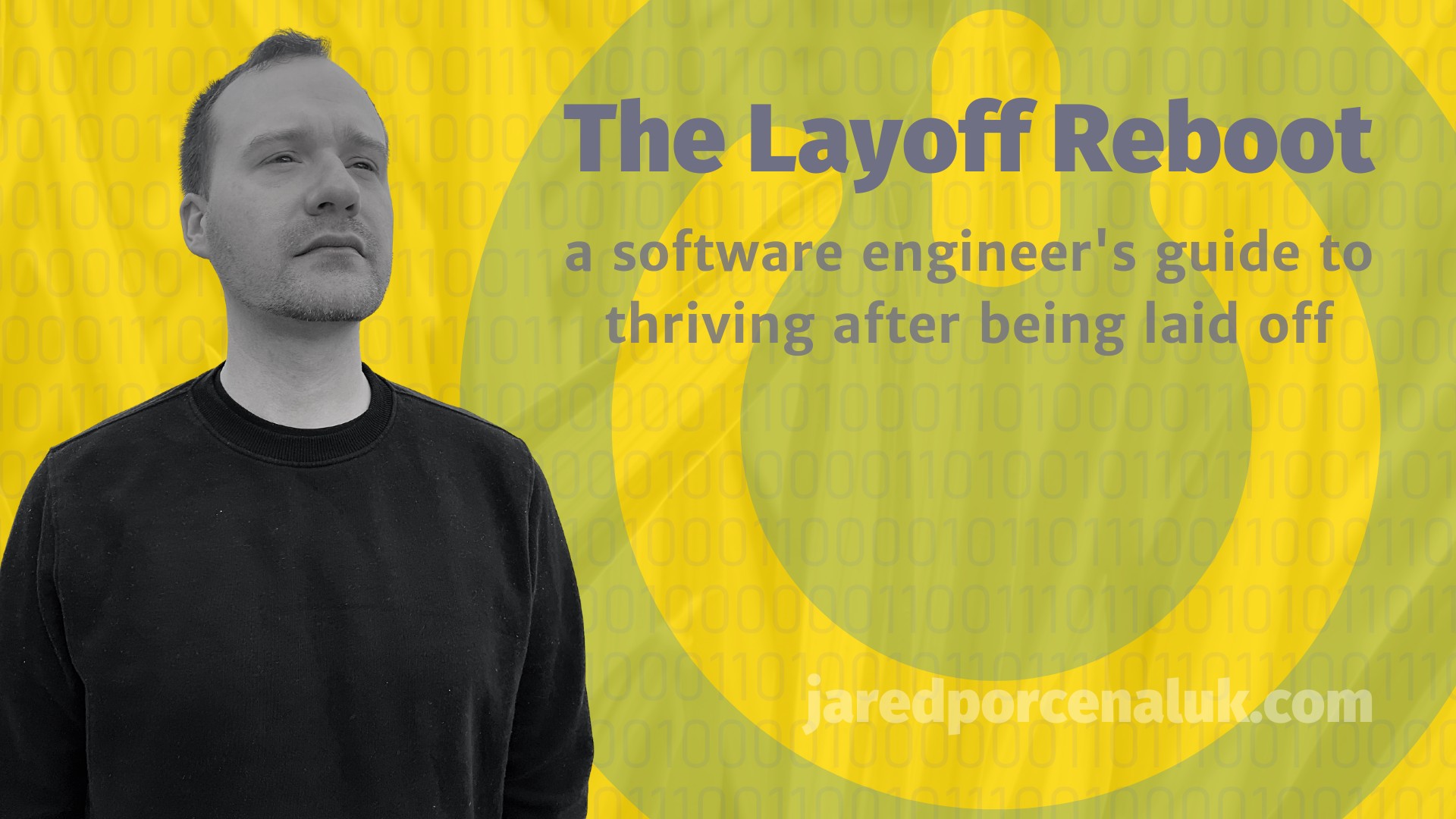Recently, I found out that people I personally know are being laid off. It has been heartbreaking to hear about all the layoffs across the industry, with Meta, Twitter, and Stripe grabbing early headlines, but it didn’t quite hit home quite as much as when I heard about it from people I know. I’ve written this blog post specifically for them.
I’ve been spending a lot of time the last six months thinking about how to get hired in software engineering and in fact have written a book, Handshake Protocol, about that very subject. While the book was originally intended for coding bootcamp grads looking to get hired as software engineers for the first time, I’ve come to realize the majority of the content is applicable to a wider audience of anyone looking to get hired as a software engineer – whether for the first time, the fiftieth time, or anywhere in-between.
I feel as though I’m pitching the book to you now, but that’s not exactly my intention. I don’t want to pitch my book. I want to help people. I know what I’ve learned could be valuable to a lot of people, and rather than profiteering off of people being laid off I’ve decided to make the book “pay what you want.” I’d highly encourage people who have been laid off to want to pay $0. Get the book and use it to find your next job with more confidence.
Not every situation is covered in the book, and layoffs are a unique one. They often come at short notice and at a time where it can be difficult to imagine anyone hiring, as they often happen (as now) in a climate of uncertainty. Unlike searching for your first job or next job by your own volition, they can come tightly coupled with complex feelings about self-worth. I’m hoping this blog post can serve as an addendum to the content in the book and to fill in the gaps about this particular situation you may find yourself in.
Layoffs are putid excrement. I recognize that. I also recognize that you can survive, will survive this, and may even come out the other side stronger than you ever were. Have hope.
Gather Yourself
You are a good person, you are knowledgeable, you do great work, and you are worth picking yourself up. A layoff is not a personal indictment. You are worthy of being paid for the value you create, and there are other companies hiring. Take a minute, regroup, and think about what you really want to do in life. What do you want to accomplish? Why? What are your values and interests?
This will be a temporary pain-in-the-ass that could lead to something great. What you learn about yourself in-between jobs could be much more valuable than continuing down the same path as before. Software engineering will continue to be a valued skill, and a versatile one. What could you do with that? Who could you work for? Or is now the time to jump into the entrepreneurial fray? Only you can answer these questions. The better you understand yourself, the more focused you will be when you decide what to do next.
Surround Yourself With Good People
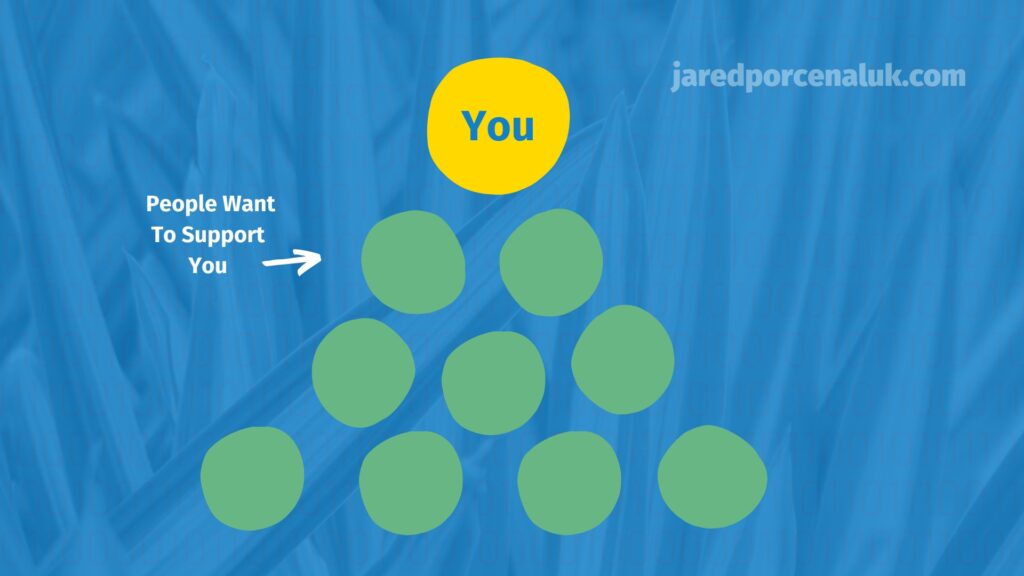
Go through the next steps with support from friends, family, and colleagues. Layoffs are often coupled with our strongest emotion, shame. Shame can make it feel like a layoff is a dirty secret, and it can be easy to retreat into yourself. For a very short time, introspection can be helpful. Ultimately, getting out of your comfort zone and sharing the pain of the experience with people who care about you, getting advice and feedback and simply having people to listen, can make all the difference in the world as you navigate the emotional roller coaster of getting laid off.
Understand Your Runway
Your runway is your financial position; how long the money you have will last you. Layoffs are often accompanied with some sort of severance package and the easy math might tell you that’s how long you have to find a job. However, there’s a chance your runway is much longer. It could be that by cutting expenses, including eating at home and no longer needing to commute, you could find you have weeks or months beyond the end of the severance package before you need to eat into your savings.
Set checkpoints in your calendar for when you’ll run out of severance pay, when you’ll start eating into savings, and when you’ll start taking on debt. That will give you an idea of how choosy you can be when looking for your next source of funds.
Set Your Vision
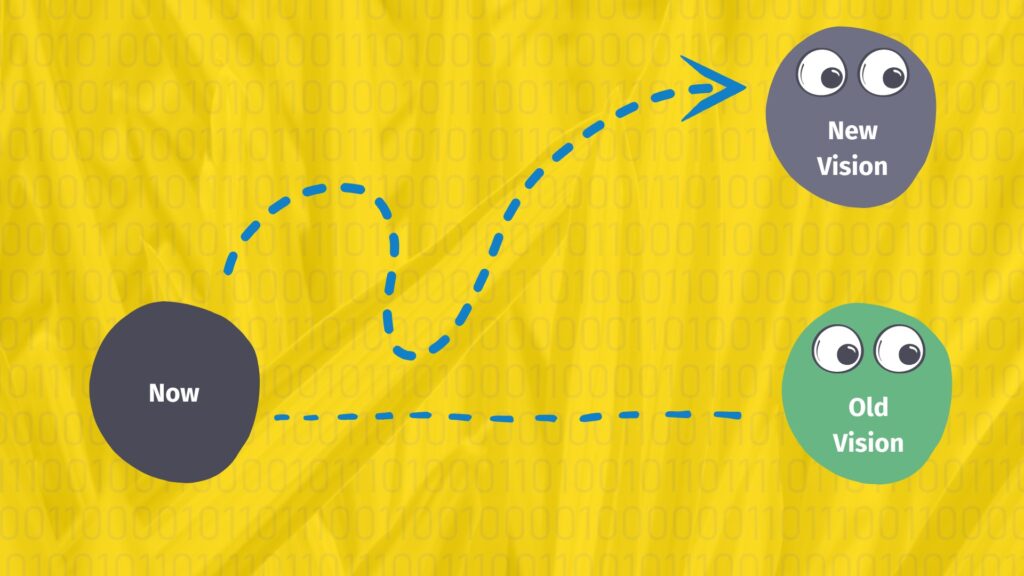
You don’t have direct control about outputs of your job search. But, I believe that making clear in your mind what you want those outputs to be can help guide your actions to make them happen. The kids call this manifesting. I’ll just call it vision. Envision in your mind when you’ll land that first interview, when you’ll get that first job, and when you’ll walk through the doors of the new company you work for for the first time. Get extremely detailed about when that will be, who will be there, what will you be wearing? What are the smells, sounds, and sights?
Alternatively, would now be a good time to strike out on your own and start your own venture? Depending on your runway, it could be. Economic downturns are often when some of the most innovative startups are formed. If you’ve been debating about doing this and have the runway to make it happen (or could get friends and family to support you, or could receive grant money), now could be the time to make that leap. I’ll generally focus on finding a job at another company in this blog post, but this is worth a consideration as well!
Form Your Strategy
Once you understand what you want to do next, form your strategy for how you’ll accomplish it. Searching for remote jobs, or searching for in-person roles will change how you approach the job hunt. Whether you are looking at bigger or smaller companies will, too. Like a marketing or salesperson, you need to find where your leads are hanging out. Where do people that work at companies like the one you would want to join hang out?
Your strategy could include:
- Going to meetups/tech events to meet new people
- Sharing blog posts about technical subjects on LinkedIn
- Commenting on other company’s posts
- Asking specific people you if they are aware of open positions you’d be perfect for
Make Your Plan
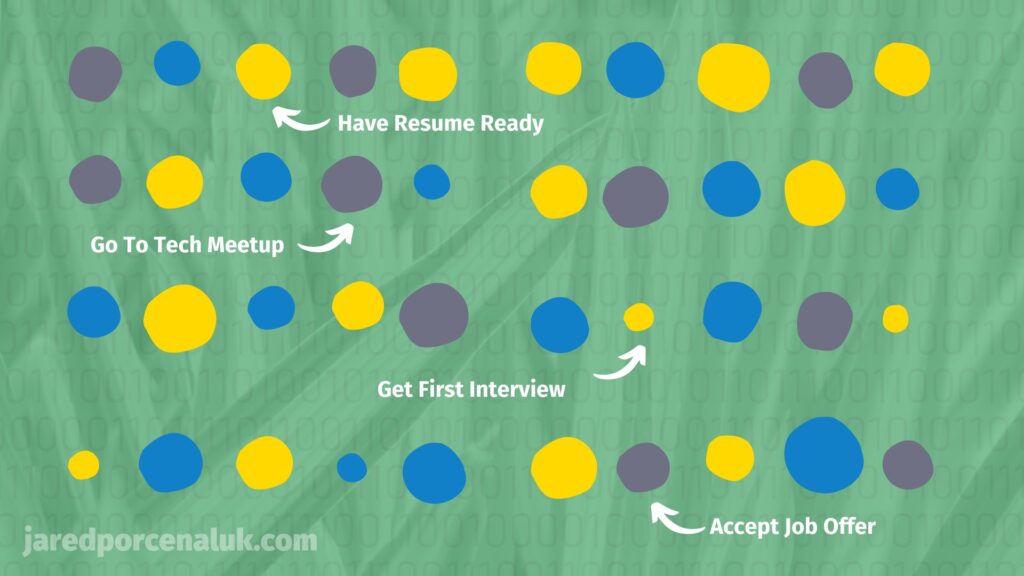
The vision you’ve created can make clear about outputs, and your plan will help clarify in your mind the inputs. After reading this article (to understand what you can list), list all the specific things you need to do to accomplish your vision by way of your strategy. These might be items such as “have resume ready to send out” and “apply to 10 companies.”
Are there any steps that are not absolutely necessary? Move them to the bottom. You’ll want to focus on the necessary steps first, and the optional ones last. For each task, include reasonable deadlines for when you’d like to accomplish each. I prefer using To Do, Doing, and Done kanban boards in Trello for keeping track of tasks like these. By keeping only one thing in Doing at a time, it makes it easier to not feel overwhelmed.
Decide How You’ll Work
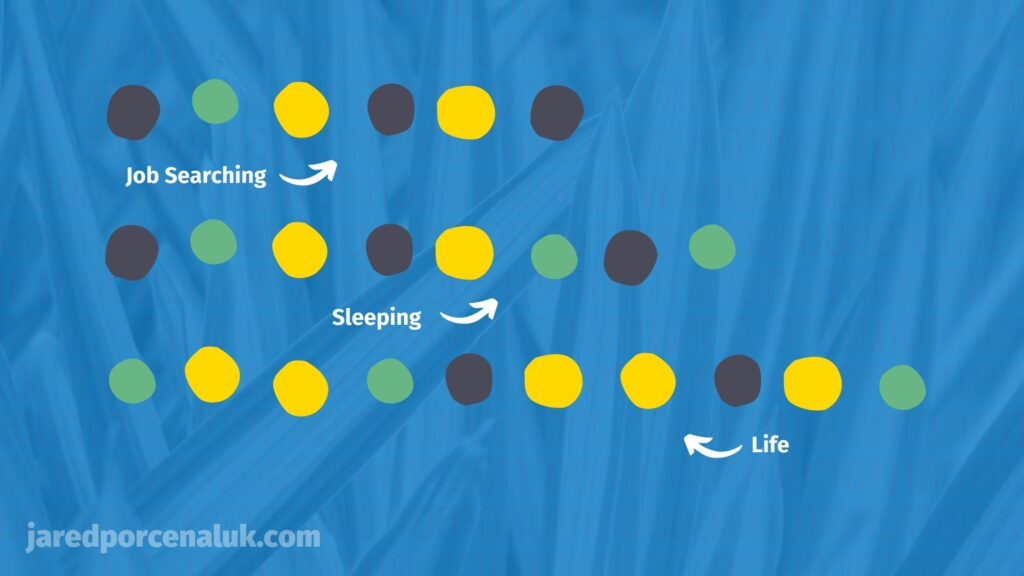
Be clear about how much time you’ll be spending on this and when. It can be easy to feel like you should be “searching for a job” 24/7, but that kind of mentality will only lead to frustration and burnout. If it were me, I’d set aside six hours every day to work on “job search stuff,” and really buckle down during those six hours and be hyper-focused. By focusing efforts inside a small time window it ensures I’d only work on the most important parts.
Treat your job search like a job. Show up to where you’ll be working dressed for success, focus on one task at a time, and then move on to the next one. Write down what you’ve accomplished each day in a notepad and revisit it the next day before starting again. This will help you stay focused on your progress and take each day one at a time.
Gather Your Accomplishments
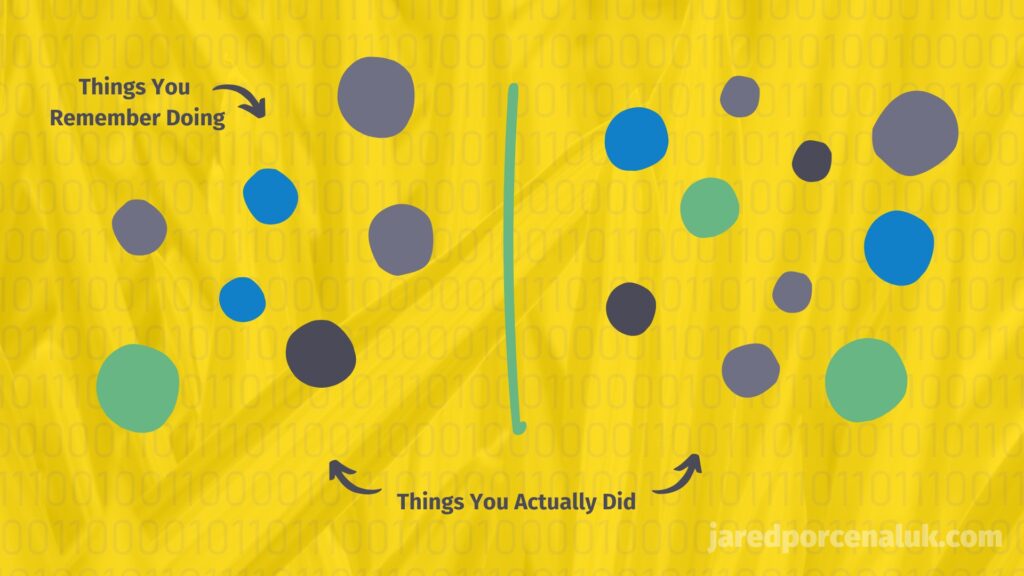
When you leave a company as part of a layoff, it doesn’t mean you’ve underperformed. Think back to what you’ve accomplished and write those accomplishments down. Rank them by how important they were to the company, and be sure to include what the positive outcome for the company was with your efforts. You probably have accomplished more than you realize! Dig deep here, and it doesn’t hurt to ask others what they remember you accomplishing. You’ll need this for your resume and your pitch.
Gather Your References & Recommendations
People are generally very supportive in a layoff situation. They want to help! Ask people you’ve worked with at the company that is doing layoffs if they would mind being a reference and if they would mind writing you a letter of recommendation. Often, there is no official means of getting those letters of recommendation into company’s hands. However, by asking co-workers if they would post those letters of recommendation to your LinkedIn profile in the Recommendations section, they’ll be in a place company recruiters will be sure to read.
Get Your Pitch
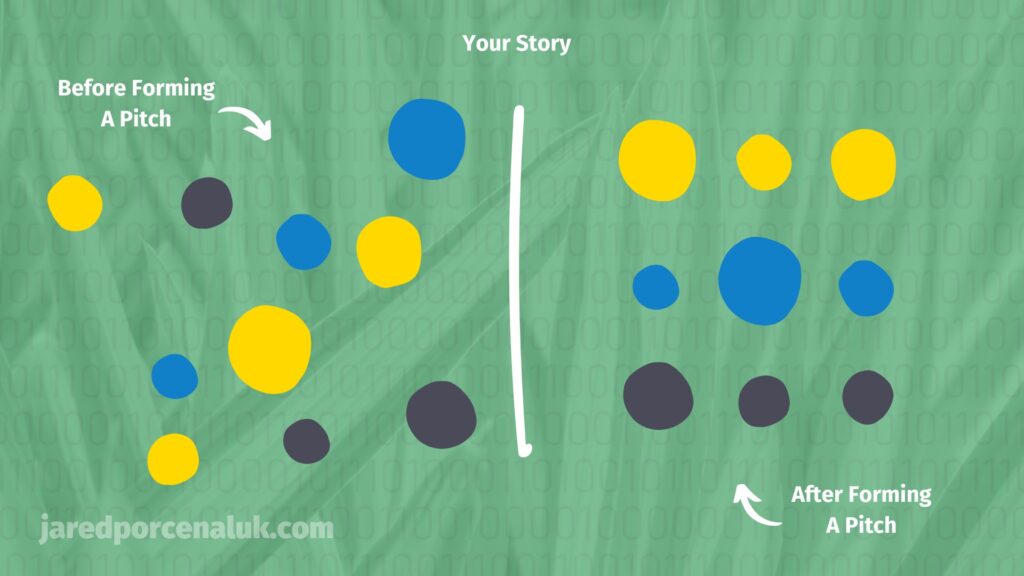
Thinking about your accomplishments as well as what you want to accomplish next, get your pitch together. Your “pitch” is a story you can tell about yourself in thirty seconds that covers why you are looking a job and what you are are able to offer the next company that hires you. This can be leveraged in all sorts of situations, not least of which when you meet people in-person at meetups and events (if that’s a part of your strategy). It’s the answer to give when people ask “so what do you do?”
I’m a front-end software engineer and used to work for (insert company here). I did a lot of work building up their e-commerce side of the business and I’m actually most proud of some of the performance work I did, which conversion rates by 20% which led to the company making hundreds of thousands of dollars in revenue. Unfortunately, with the economy the way it is, I was part of a recent round of layoffs so I’m looking for a new role now. I’m taking it as an opportunity to find a role in a space I’m super passionate about, something that helps with climate change or energy use, that sort of thing. If you know anyone in that space looking for a great front-end engineer, I’d definitely appreciate if you passed along my info!
You likely won’t get to (or really, want to) rattle that off verbatim. If you understand what your value is, can communicate the position your in, and share what you’re looking for, you’ll be ahead of the game. And remember, people want to help and support those who have been laid off. Be loud and be proud about your situation when pitching. You didn’t do anything wrong – don’t be shy about having been laid off.
Get Enthusiastic (And Not Desperate)

I hope that by considering your future, you realize it’s as bright as it ever has been. I hope you find the understanding that you now have an opportunity to chart your own course, and within that you find a sense of eagerness. If you can capture that and hold onto it, it will show with every interaction you have with people and it will catch fire. People are attracted to those with a genuine enthusiasm.
If you can do that, you’ll have a much easier time than if you fall into the trap of feeling desperate. You have work experience in a largely growing field, software engineering, and you will be able to find a job. For whatever complex psychological reasons, people typically want to surround themselves with inspiring, enthusiastic, empowered people. You are more than your situation and can be that person people are attracted to. And if you are, it will make it all the more easy to find that next job.
Get In Front Of People

It can be very tempting to hide behind the screen. Apply to job listings, yes, but if you really want to boost your chances of getting that next job, the best thing you can do is to get in front of other people in your field and share that you are looking. Go to industry events (some even have food, which can help stretch your runway, so win-win) even if it means taking time to visit a nearby city. Talk to people, ask them about their work and they inevitably will ask you about yours. Then it’s time to think about your pitch and consider what is pertinent, what they would be interested in hearing. Follow up through LinkedIn the day after the event and thank them for talking with you and ask them to let you know if they know of anyone hiring in the area you’re interested in.
Leverage The E Superfecta
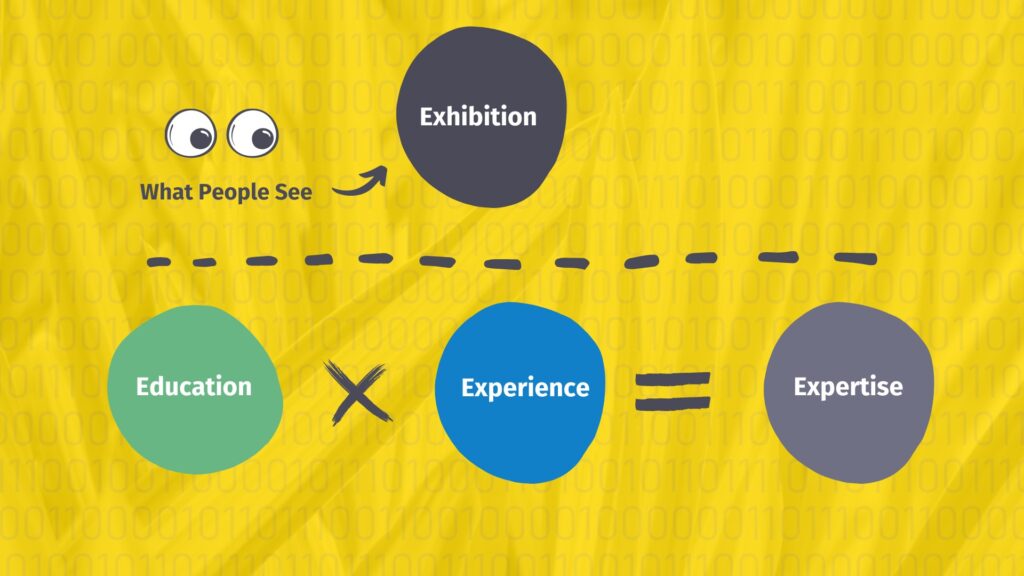
The E Superfecta is your education, experience, expertise, and exhibition of your work. Your expertise is a product if your education and experience, and the exhibition is the part that everyone sees. Continue to learn, continue to do (e.g. build side projects), and continue to share about them. Building a side project and sharing about it through blog posts on your website or videos is a wonderful way to exhibit your expertise and advertise that you are interested and engaged in your craft.
Keep Your Chin Up
I know this is a tough time. Life has handed you a crap sandwich with all the trimmings. I’m not going to pretend that you should jump around singing about it, but I do want you to keep your chin up. How you grow and develop in this will affect you the rest of your life. Take it on well, face the challenge with dignity, and whatever happens, keep going.
